Top 10 Lean Protein Sources for Optimal Health
Ready to boost your protein intake in 2024? You're not alone. Many health-conscious individuals are ramping up their protein consumption to trim body fat, build muscle, and enhance overall well-being. However not all protein sources are created equal. Foods high in saturated fat, sodium, and artificial additives (like processed meats) can actually have negative health effects, increasing the risk of heart disease, inflammation, and metabolic disorders. Choosing lean proteins is key for optimal health. Options like white fish and various plant-based proteins not only help reduce inflammation but also lower the risk of chronic conditions, offering a wide range of health benefits.
Let's dive into the top lean protein options to supercharge your meals!
1. Cod

NUTRITION (PER 3 OZ): 75 CALORIES, <.5 G FAT, 16 G PROTEIN
Cod stands out as one of the best seafood choices for high protein and low calories. With its low fat content, cod boasts significantly fewer calories compared to fatty fish such as salmon, mackerel, or tuna. Moreover, cod is rich in vitamin B12 and a good source of vitamin B6, offering cardiovascular advantages. Additionally, it contains a modest amount of omega-3 fatty acids, contributing to heart, eye, and brain health.
2. Haddock
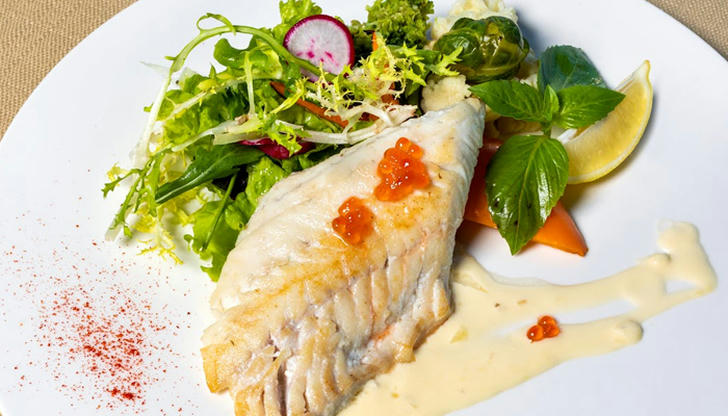
NUTRITION (PER 3 OZ): 76 calories, 0.5 g fat, 17 g protein
Another excellent choice in the realm of white fish is haddock, renowned for its low calorie and fat content. Packed with essential nutrients like B vitamins, selenium, and phosphorus, haddock offers a nutritional boost. Moreover, it boasts low mercury levels compared to other seafood varieties while still providing beneficial omega-3 fatty acids.
3. Chicken Breast
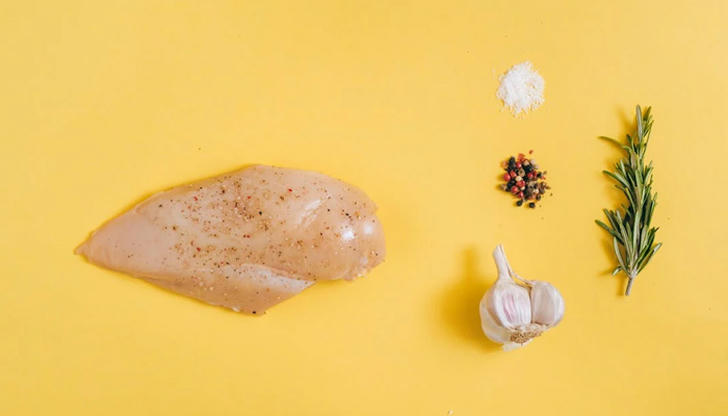
NUTRITION (PER 3 OZ): 134 calories, 2.5 g fat, 27 g protein
Chicken is undeniably the star of the show when it comes to animal-based protein in the US. Skinless chicken breast, in particular, has risen to fame for its nutritional perks and versatility. With a mere 2.5 grams of fat per 3-ounce serving, of which only 1 gram is saturated fat, it's a lean protein powerhouse. Packing about 10 grams of protein per ounce, a 3-ounce serving delivers almost 30 grams of top-notch protein, complete with all essential amino acids.
Removing the skin further trims down fat and calories, making skinless chicken breast a cornerstone of a healthy, protein-rich diet. According to research published in the journal Nutrients, observational studies suggest that opting for chicken over fattier red meats may aid in weight management and reduce the risk of cardiovascular disease and type 2 diabetes.
4. Turkey Breast

NUTRITION (PER 3 OZ): 125 CALORIES, 2 G FAT, 25 G PROTEIN
Turkey breast emerges as a leaner alternative to chicken breast, offering more protein per calorie. It's an optimal choice, especially if weight loss is your goal, as turkey can help you feel satiated for longer periods. With its mild and slightly sweet flavor, turkey breast lends itself well to various cooking methods, whether roasted, grilled, or added to sandwiches or salads. In terms of nutrition, turkey breast boasts potassium, manganese, zinc, selenium, and B vitamins.
For most adults, a meal containing 25-30 grams of protein is considered ideal. Consuming more than 30 grams in one sitting doesn't offer additional benefits and may contribute to increased body fat if your calorie intake exceeds your daily limit.
5. Fat-Free Cottage Cheese
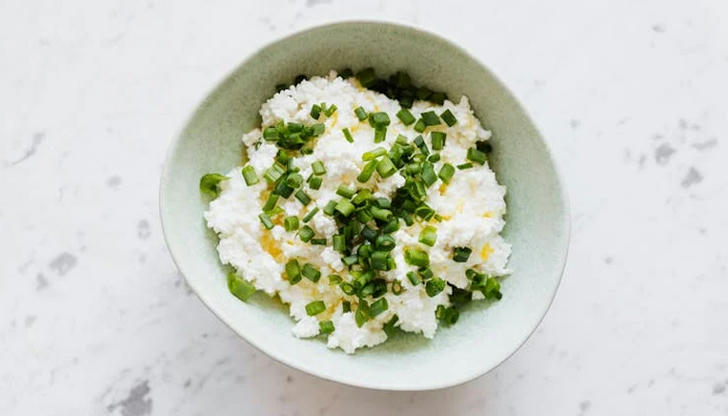
NUTRITION (PER 1 CUP): 104 CALORIES, 0 FAT, 15 GRAMS PROTEIN
Fat-free cottage cheese emerges as an excellent option for boosting your protein intake without adding extra fat or calories to your diet. It's particularly rich in casein, a dairy protein known for its slow digestion rate, unlike whey, which digests quickly. This slower digestion can promote satiety and curb cravings, aiding in maintaining a healthy eating pattern. Enjoying cottage cheese post-workout is ideal for facilitating muscle repair and growth.
Moreover, cottage cheese is a good source of protein and calcium, along with essential vitamins and minerals such as phosphorus, potassium, and vitamin B12. Studies suggest that incorporating cottage cheese and other dairy products into your diet can contribute to bone health, blood pressure regulation, and potentially lower the risk of certain cancers. Additionally, cottage cheese contains beneficial probiotics that support gastrointestinal tract health.
6. Egg Whites

NUTRITION (PER 3.5 OZ): 45 CALORIES, <1 G FAT, 10 G PROTEIN
Egg protein ranks high with a perfect amino acid score of 100, making it exceptionally absorbable. Research suggests that incorporating egg white protein into your diet can enhance muscle strength, lower LDL cholesterol, and diminish body fat. With a low-fat content, egg whites offer an excellent calorie-to-protein ratio. To maximize nutritional benefits, consider pairing egg whites with one whole egg, as the yolk contains essential vitamins and nutrients like vitamins A, D, E, B vitamins, lutein, and zeaxanthin.
7. Nonfat Plain Greek Yogurt
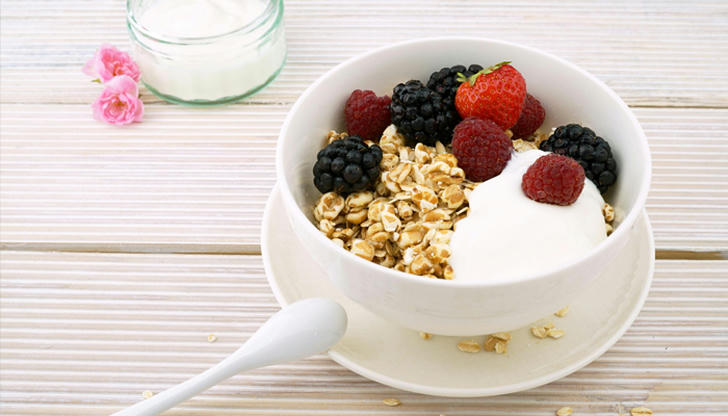
NUTRITION (PER 6-OZ CUP): 92 CALORIES, .5 G FAT, 16 G PROTEIN
To boost your protein intake, incorporating non-fat Greek yogurt into your diet is essential. Compared to traditional yogurt, Greek yogurt undergoes straining to remove whey, resulting in a thicker, creamier texture with double the protein and less sugar. Opt for plain varieties over flavored options to keep calories and added sugar in check. A 6-ounce serving of plain, nonfat Greek yogurt provides nearly as much protein as three eggs. Additionally, research published in Frontiers in Nutrition suggests that Greek yogurt can aid in muscle gain and body fat reduction when included in a strength training regimen.
8. Firm Tofu

NUTRITION (PER 100 G): 72 CALORIES, 3.5 G FAT, 9.5 G PROTEIN
When it comes to plant-based protein, tofu stands out as a superb option, offering all nine essential amino acids found in animal-based protein sources. Additionally, tofu is rich in essential nutrients such as calcium, iron, magnesium, and B vitamins. Made from curdled soy milk, similar to the cheese-making process, tofu is also known for its isoflavones content, which can help reduce inflammation and lower the risk of chronic diseases like heart disease, certain cancers, and type 2 diabetes. Recent research published in In Vivo even suggests that regular consumption of soy foods may decrease the risk of breast cancer in both pre- and post-menopausal women.
9. Cooked Lentils
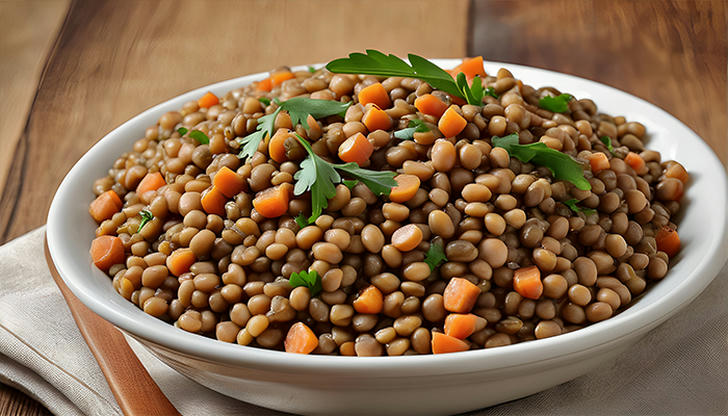
NUTRITION (PER 1/2 CUP): 115 CALORIES, 0 G FAT, 9 G PROTEIN
Lentils, known for their versatility and nutrient-packed profile, are a powerhouse legume offering a plethora of health benefits. Packed with protein and rich in polyphenols, they contribute to muscle growth and support a robust immune system. Studies in the International Journal of Molecular Sciences highlight their diverse properties, including anti-diabetic, anti-obesity, anti-inflammatory, and anti-cancer effects. Furthermore, their high fiber content promotes digestive health and satiety, aiding in weight management. Lentils also provide essential vitamins and minerals like iron, folate, and potassium, further enhancing their nutritional value.
10. Chickpeas (Garbanzo beans)
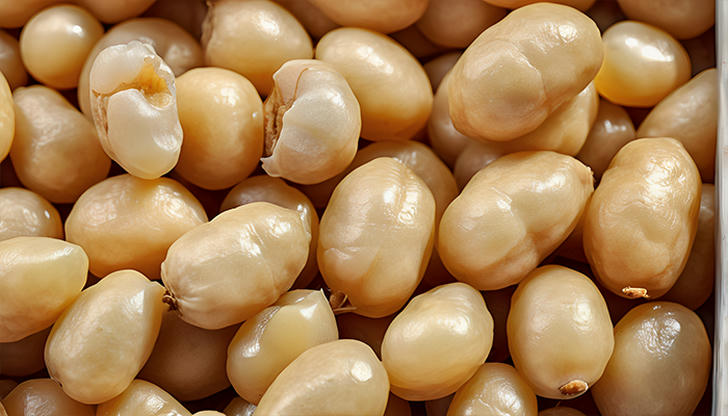
NUTRITION (PER 1/2 CUP): 105 CALORIES, 2 G FAT, 5.5 G PROTEIN
Chickpeas, also known as garbanzo beans, are nutritional powerhouses, offering lean protein along with a wealth of fiber and essential nutrients such as iron, manganese, zinc, B vitamins, and magnesium. Incorporating chickpeas into your diet can help regulate blood sugar levels, support weight loss efforts, enhance heart health, and promote a healthy gut microbiome. Research published in the journal Nutrients suggests that the resistant starch found in chickpeas can nourish beneficial gut bacteria, contributing to improved metabolic health overall.
